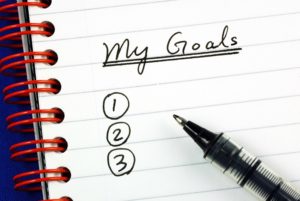What better time than the start of a new financial year to review your financial calendar.
What, you don’t have a personal financial calendar??? What’s with that?
Ok I get it, this may just be a new concept to you, and that’s fine.
Let’s take a look at how you can set up a personal financial calendar.
Why Use a Personal Financial Calendar
Before we get into what to include in a financial calendar, it’s a good idea to understand why you would want to use one in the first place.
I am a big believer in you taking control of your money.
One of the best ways to gain control of your money is knowing where it is going…
…and to give yourself a good head start, a personal financial calendar can be a great tool.
You know the saying about why businesses or people fail, it goes something like this ‘you don’t plan to fail, you fail to plan’.
 A financial calendar can assist you to know when you have significant financial commitments throughout the year…
A financial calendar can assist you to know when you have significant financial commitments throughout the year…
…which helps you to plan for these events.
By keeping your plan visible, in a prominent place that you will see regularly, you are reminded of what is ahead.
This plays an important role in your mindset.
Instead of these future events being ‘out of sight, out of mind’, you are taking steps to be aware and plan…
…and that has a very positive impact on your money stress.
If you know something big is coming up, and you have planned for it, it is a lot less likely to result in something like credit card shock or more debt.
How To Set Up A Personal Financial Calendar
I’m going to assume that you don’t have a financial calendar and outline below the five steps you can take to create your first financial calendar.
You can start your calendar whenever you want. Although I find it works well to have one ready to go for the start of each year or financial year.
Step One: Your current financial position.
Whenever you undertake any type of planning it is important to understand your starting point.
This step is about knowing your current financial position, and planning your money goals for the coming year.
List out the things you want to achieve for the next year…
It could be to repay all your debt or clear your credit cards. You may want to establish your emergency buffer or start allocating money to your wealth builder.
 For example, I have listed business goals I want to achieve, including the number of new clients I want to assist per month. I also have personal goals including a significant contribution to my preferred charity and reaching a financial milestone with my investment income.
For example, I have listed business goals I want to achieve, including the number of new clients I want to assist per month. I also have personal goals including a significant contribution to my preferred charity and reaching a financial milestone with my investment income.
Each of these requires specific steps to be taken throughout the year, which I can plan. Big goals broken down into small actionable steps. Simple, right?
Step Two: Know your weaknesses.
Make a list of the things you need to set up or that you need to give more attention to.
By committing something in writing, you may find the conviction needed to move towards completing your goals.
I like the top-down approach — I start out with the big picture and list everything down. Later on, I follow up by checking each detail in some depth. For instance, if you haven’t set up your emergency buffer yet, make that a priority and list what you need to do to make it happen.
Write down all the targets you need to achieve and when you would like to achieve them (or a deadline date if it is something more rigid).
Step Three: Prioritize your goals.
As in any plan, and especially when it comes to your money, there are going to be goals that are more important than others…
That is ok too; it is good to know which goals are going to make the most impact on you during the year and to prioritise these goals.
Since it is expensive to carry debt, you might make it your highest priority to reduce or eliminate as much debt as possible.
This is something you can factor into every month of your calendar.
For example, if you have a credit card debt of $5,000 and you decide you can pay off a couple of hundred dollars each month, add that to your financial calendar with dates for the payments to make it a concrete commitment.
Step Four: Remember important payments that have specific deadlines.
This is where you get into the main part of your financial calendar…
Everybody has commitments each year that have specific deadlines. These include submitting your tax, paying utility bills, Christmas and birthday expenses, debt repayments such as mortgages and credit cards, and insurance.
List these out and place them on your calendar. Remember, it’s about no surprises for things that you know you have to do.
Seeing it all laid out in your calendar will give you a good oversight of the year ahead.
 You first achieve control of your money with the right mindset. A financial calendar that details key events is a good reminder throughout the year of what is ahead, and the goals you want to achieve. Your mindset remains focused and supports your actions.
You first achieve control of your money with the right mindset. A financial calendar that details key events is a good reminder throughout the year of what is ahead, and the goals you want to achieve. Your mindset remains focused and supports your actions.
Step Five: Think of the Future!
The whole idea behind planning a financial calendar for the year ahead is to ensure that nothing catches you off guard.
Simple planning and looking ahead can get you into a good financial position.
For instance, saving up for your taxes every month will allow you to have the right amount of money ready to pay when the time comes. Putting off the savings that you need to make will mean scrambling, scrounging around and worrying about a bigger amount of money you need to come up with when your bill finally falls due.
You don’t need that money stress…
If you think a year of planning might be too much at this stage, start with a month or a quarter. The key is to get into the habit. Once you have done it a few times it will become easier and planning for a year will be a piece of cake for you.
Conclusion
A calendar is simply a tool to help you become more organised about how to manage your money and avoid money stress.
If you are looking for a resource to use, consider PocketSmith. I prefer using my Outlook calendar, but this might be a resource that helps get you started.
Do you have a system to plan your financial calendar?
Leave me a comment and let me know what you do.

thanks for sharing the tips! it would be so helpful for the beginners like me!!!